Text
I’m moving again, so I’ll be late with the next chapter of WWU. We’ll probably just be a week late and then back to normal. I’ll have to move yet again in a few months, at which point I may have to take an actual break to get things settled, but we’ll see. In the meantime, I’ll put in an update on Black & Blue, just as a treat :)
#j no#writing tag#next chapter of wwu is going great#v excited#and it looks like back & blue is going to be a bit longer than anticipated so yay!#at least 2 more chapters counting this one
5 notes
·
View notes
Text
Week Nine: Guilt and Change
I’ve been thinking a lot about guilt lately (what a profoundly WWU way to start a blog post), so when Kay brought it up in this chapter -- especially in the section on why we hold classroom race discussions in the first place -- my ears perked up. It might be telling that his first reason is precisely this: that “We Have the Race Conversation to Assuage Our Guilt.” I also think the short paragraph under that heading contains multitudes, and I suspect there’s a lot to be learned in the details of the three examples he presents.
His thesis going into these hypotheticals is that guilt is the product of “A teacher’s human empathy” mixed with “keen recognition of his privilege.” Keep this formula (empathy + recognition-of-privilege = guilt) in mind.
The first situation he offers is this: “A novel (like Kindred) about the antebellum South might trigger a teacher’s regret for knowing little about modern-day slavery.” To me, this is a perfect example of guilt at its most useful: guilt that has a tangible, fixable cause and that is very obviously the sane response to a given set of circumstances. This teacher has a responsibility to know about slavery for the sake of his students, and he doesn’t, and it’s totally appropriate that he should feel guilty as a result. More importantly, he can use that guilt to go home and do some research, instead of watching Netflix or whatever. He’ll be able to assuage his guilt exactly in proportion to the amount of good, meaningful new knowledge he brings into the classroom.
The second situation is this: “A history of Ghandi’s approach to nonviolence might trigger a teacher’s shame for not sufficiently owning the benefits of colonialism.” This isn’t as clear as it could be (“owning” rings in a funny way, and “owning up to” might be better), but Kay’s meaning is still pretty straightforward: in this instance, a teacher feels that the way he benefits from the fallout of colonialism ought to be more thoroughly “owned” or acknowledged. It’s unclear whether he ought to be owning it in his classroom, in his conversations with friends, or in the general fuzz of his psyche. If the first or the second, and assuming that his shame is proportional to his actual behavior, then certainly he should change. He could lead class conversations with a lesson on the historical nature of wealth, or be less of a prick about how he’s earned everything he owns. If it’s the third... I’m less certain. Sure, a certain amount of historical self-awareness is healthy. If his great-great-granddad worked for the East India Company or something, then god help him. But if all he feels guilty about is that the world popped him out in a comparatively advantageous spot, I wonder how useful his shame really is. The next example helps with this.
The final situation is this: “After a night of staring slack-jawed at the news, a teacher might feel the need to apologize for all the bad guys who look just like him.” Kay’s thoughts about this teacher go more or less unstated. But in my view it’s this kind of guilt, more than any other, that stymies real change and stifles good discussion. There are so many reasons for this. For one, this is not a guilt that can be acted upon: there is no set of things this person could do to assuage the guilt of sharing a phenotype with, say, a vicious policeman. For another, it’s a guilt riddled with flaws: just because this teacher might not have to fear that policeman, or might benefit from some of the same privileges as him, does not mean that the teacher is responsible either for the actions of the policeman or for the system that created and enabled him. No imaginable view of will and causation allows for a world in which the policeman’s actions (or, for that matter, the teacher’s own whiteness) are the teacher’s fault. It’s more than reasonable to feel guilty about the things we do; it’s cripplingly pointless to feel guilty about the things we are.
So, in light of all that, I’d like to suggest another equation -- one perhaps hinted at when Kay says later that “Guilt, when matured by reflection, can inspire a teacher to approach a sensitive subject with humility.” Here’s my alternative: that human empathy combined with a recognition of privilege can produce action, and that guilt is at best a meter on that equation’s productivity, at worst a sui generis solipsistic rabbit-hole.
UC Irvine professor and hard-partying Marxist Catherine Liu, in an interview with Jacobin, suggests the following:
“Take an objective (but compassionate) view of your own feelings, and put them aside.”
For those of us who at the same time both benefit from the state of the world and truly want to work for change, I think that’s very good advice.
0 notes
Text
Tschüss baba, Österreich.
Well well well, here I am in Bellingham, exactly two months since I arrived in Seattle on July 6th. It’s been awhile since my last blog, but I want to close this blog up with one final post, about my last adventures in Austria, and about how amazing this experience has been. When people ask me how it was, I of course say it was great. But really it was life-changing. It just feels weird and cliche to say out-loud, but it really was a necessary experience for me. I learned so much, and am in such a healthier head-space than I was before I left.
First, I will catch you up on all of the things I did leading up to my departure back to Washington. June was my last full month in Austria, and it was kind of a shit show as University was so chill the entire time, until June when I had four essays and 6 exams, but of course I still made time to meet up with friends and have fun.
After I said goodbye to the majority of my friends I jumped on a train to the west of Austria, where the stereotypical Austria is. I stayed at Assunta’s house and got to explore the mountain village she lives in, as well as the city down in the valley called Innsbruck. It was so nice to be away from a big city for once and be in the cool mountain air. It was also cool to visit Assunta’s hometown, as she lived in mine.
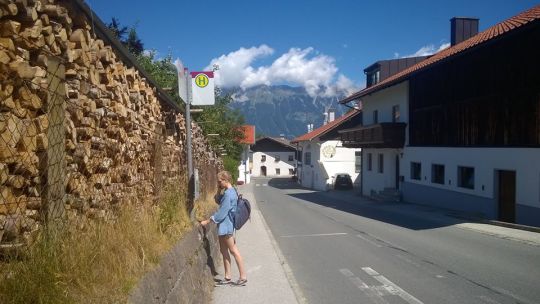
The majority of my last full day in Austria was spent on a train back to Graz, At 5 AM the next day I would be on a train to the Viennese airport.
When thinking about how this experience has changed me, I think back to my first day in Graz, getting to my dorm with an overwhelming feeling of dread weighing on my lungs, being extremely insecure and afraid. The first morning in my dorm I cried because I thought I had made a horrible mistake, that I did not have the skills and abilities to make it an amazing experience. On the morning of July 3rd the dorm management came and gave me the deposit back, the feeling I had walking out of that dorm, suitcases in tow, was pure happiness. I felt so proud of myself, so validated. Three years ago when I told people I wanted to study abroad in Austria, I said it, but didn’t really believe that it would happen, but maybe in some alternate universe a more capable Tanner would.
My transformation from the beginning of my exchange to the end of my exchange, can be best portrayed by Peggy Olson Season 1 moving into Sterling Cooper, to Peggy moving into McCann Erickson in the final episode, Season 7.
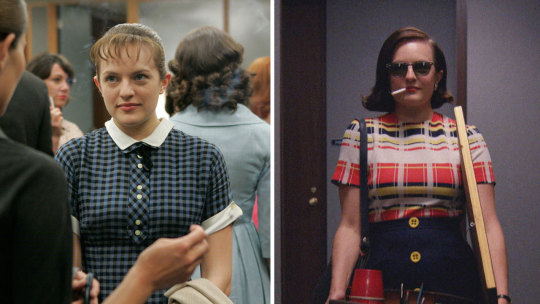
Before I went abroad I wasn’t happy, and was really struggling with school. Not because it was hard but because I really didn’t care about it, I would go out and PARTY on average around four nights a week. Going out and drinking with people was the only thing that made me feel at peace, but as a result I handed in essays days late with shitty excuses tied to them, and had to drop classes due to absences (these classes were at 8:30 AM). If I had to describe myself in three words at that point in my life the first word I would’ve picked would be sad or depressed, the other words maybe, compulsive and insecure. I wanted more then anything to be away. Going abroad used to be a dream for me, but last year it turned into an act of desperation. I don’t know what would’ve happened if I had stayed, that’s how important this experience was.
The first month or so of my exchange really felt like mental health rehab. For the first week or so I was pretty alone as I hadn’t met most of my friends yet. I had so much time to reflect while exploring the city of Graz, finding the University, walking through the Old City, and climbing up to the clock tower. This solitude eventually led me to some conclusions about myself. I would dwell on the past, and past versions of myself that I hated, and that seeped into my perception of my current self. Instead of running away from who I once was I accepted him, and also acknowledged that I am no longer that person. I think that realization did wonders, and it also made me realize that I don’t have to be so sad all of the time, I wanted to be happy, but I was focusing too much on the negative, which only drew more negativity into my life.
Before my exchange, there was nothing I hated more then the future, as I thought mine was always doomed. I hated the future when I was in middle school, looking towards high school and then eventually college. I just never thought I had what it took to be happy or successful, but now I know that’s bullshit. I know my future will be good (as long as we don’t have a nuclear war or some shit) and after Graz, I now have a clearer image of what I want my future to be.
Besides a shift from living my life in pessimism to optimism, the next huge change came in my confidence. Being on my own, being confused as fuck 24/7 but still figuring shit out, traveling alone, moving to a new city, and making friends from over ten different countries all over the world helped me in this aspect. I know I can succeed in unfamiliar and new situations, and now crave that, you learn so much from challenging yourself.
What I will miss about Graz,
I will miss “baba,” it is kind of like “bye-bye!” In Austrian. And it is freaking cute.
I will miss daily pretzels.
I will miss the double kiss-hug thing that Europeans do, as well as saying “Ciao!”
I will miss living in such a beautiful city.
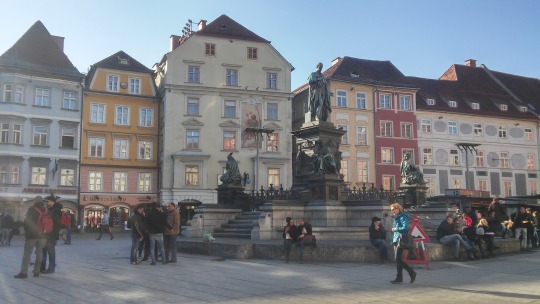
I will also miss the nice people I met at University. I even made friends with a professor! I am working with KF and WWU to potentially open a KF chapter at WWU! Exciting, but nothing is certain.
But mainly, I will miss the friends that made me feel like I was home.
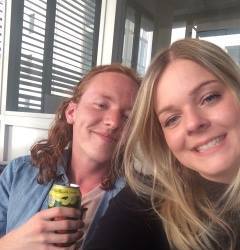
Skadi was the first friend I made and we bonded so much. We watched Clueless together, traveled to Vienna, shopped and much much more <3 I will miss playing Wikingerschah in the park with Laura, Finja, and Milan, pre-partying at Laura’s (everyone there says pre-party instead of pregame it’s weird) partying in the clubs, and of course, Flunkyball! Skadi is definitely coming to visit sometime the northwest sometime soon, and I’ll make it to Deutschland too!
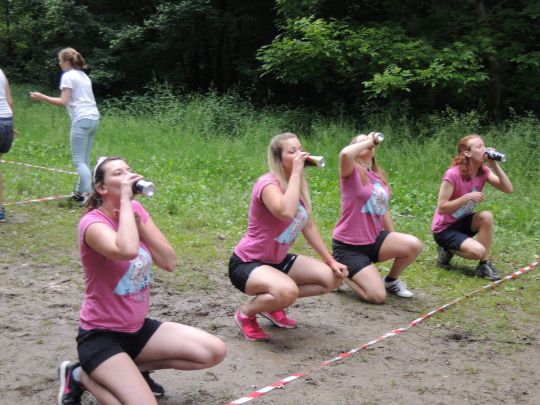
(we were the only ones with team spirit and matching tee-shirts... Austrians...) German crew, I will miss you guys so much.
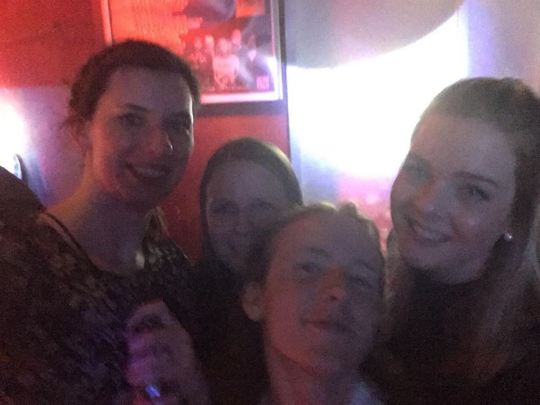
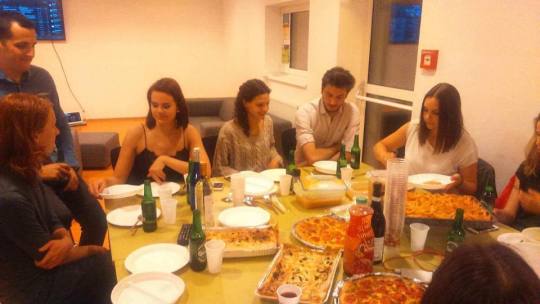
I will also miss the ERASMUS crew. I squeezed myself into this friend group for the Italian dinners. Just kidding. But hanging out with these people was always so cool. We all came from different countries and continents. We really had so much fun together, going out, going on trips together, and having chill evenings where we just ate dinner together.
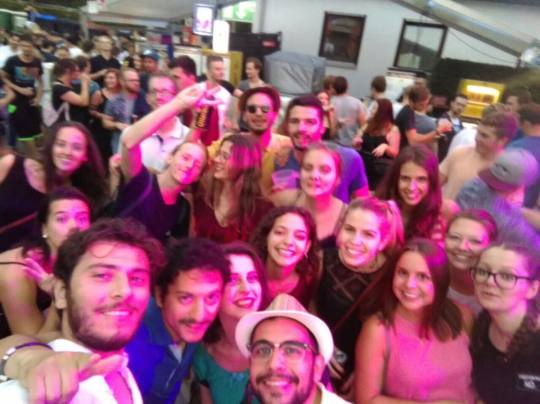
Hopefully I will see some of you again! I will for sure be back to Europe somewhat soon!
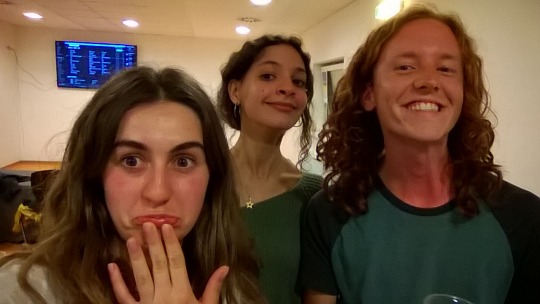
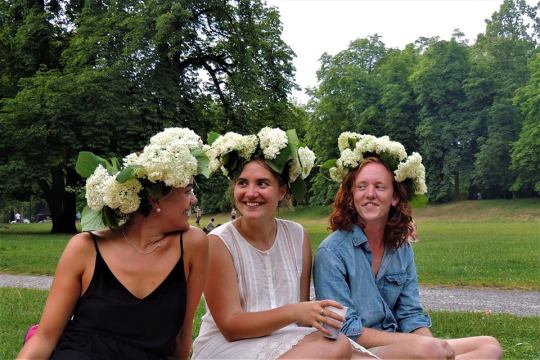
The two girls above I will for sure see again as well, Katha and Anita! We bonded through our ability to hold our liquor, and through our love of Mad Men and Twin Peaks. It’s really cool to be able to find your people anywhere in the world. We spent so many nights out until four, or in until four, just chatting about life.
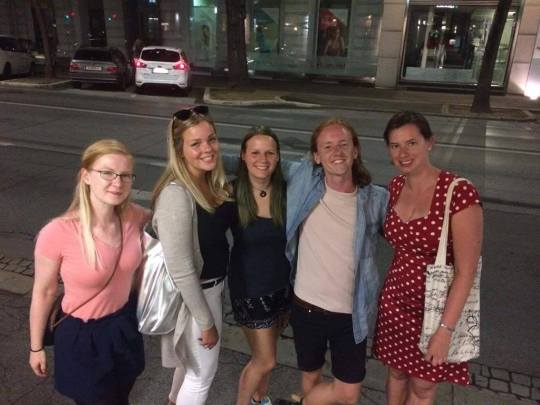
Before I went abroad I was determined to make only European friends, but I managed to make an American one! Liz on the far left is from Minneapolis, her German is freakishly good so she was also in the Deutsch crew (making my German sound like shit.) But it really was nice to have an American friend there, especially such a nice and down to earth one, I’m sure I will see you sometime soon in the future Liz!
Living in a community with so many exchange students it was so easy to make friends, because we were all in the same situation. Being in Graz for a limited amount of time, and wanting to make the experience meaningful. That being said, it is harder to become friends with the host students, because they are in a different situation, add in a language barrier and it gets more difficult. But I did meet some great Austrians. Magdalena, thank you so much for helping me with my German! I am so grateful, and I’m glad I made a new Austrian friend. Hope to see you again sometime.Thanks for spritzers and Kaiserschmarrn! (Kaiserschmarrn is like scrambled pancakes with raisins inside, served with apple sauce)
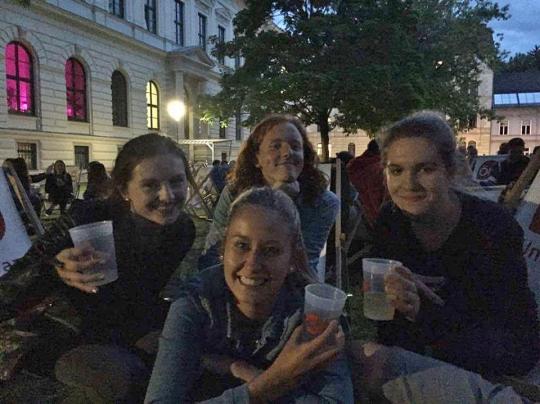
I was anticipating leaving Graz to be much more emotional than it was. When I got on my plane back to the US I felt so calm and ready to continue my life. I definitely got the experience I needed out of this. When I left for Europe I was so excited to leave, when I was leaving Europe I was so happy to return. It wasn’t like a home-sick feeling though, it was one of fulfillment. I had my Austrian adventure, and now I can continue moving forward, making my life what I want it to be.
1 note
·
View note